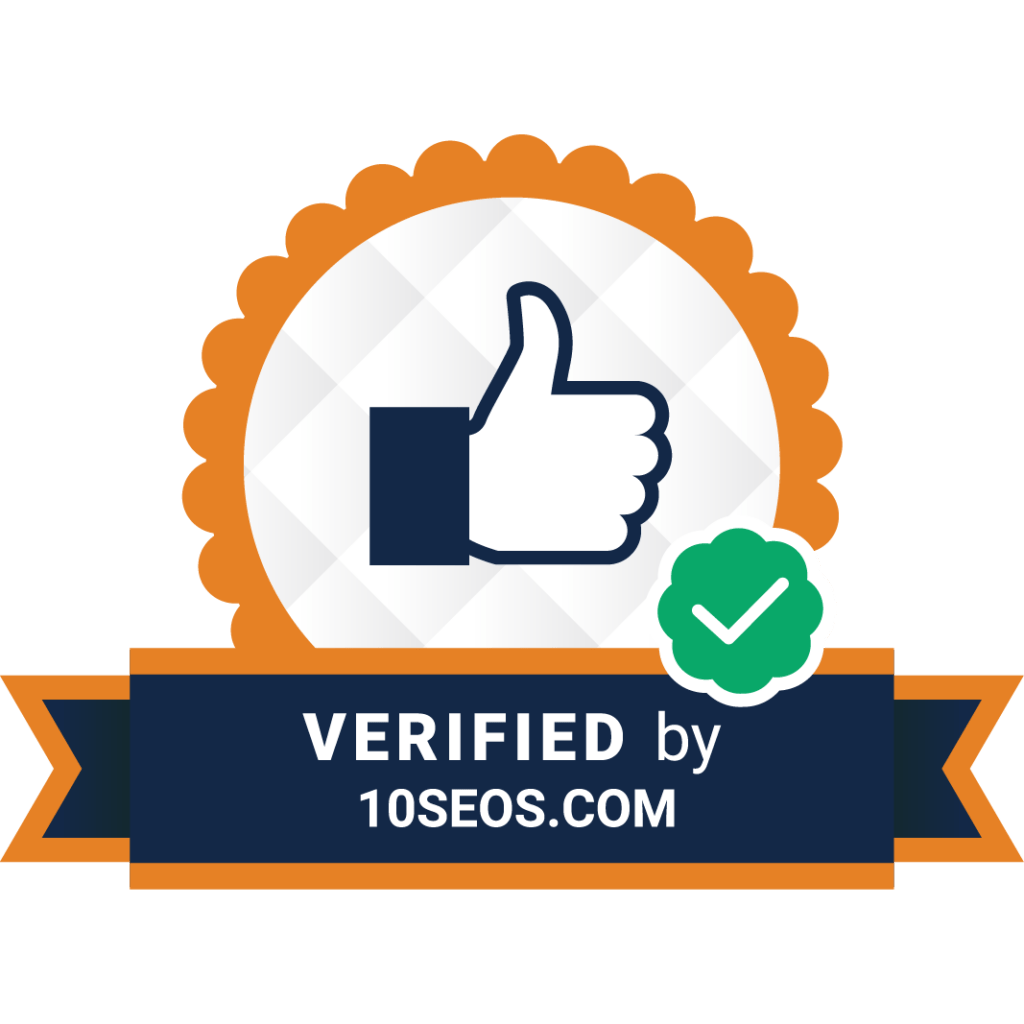In 2025, small businesses are poised to outshine big brands. How? By harnessing the power of AI agents.
AI technology is no longer exclusive to large corporations. It’s now accessible and affordable for small businesses.
These AI agents are transforming how small businesses operate. They automate tasks, enhance customer service, and drive growth.
Imagine a world where small businesses compete on equal footing with industry giants. AI makes this possible.
AI agents offer tailored solutions for small businesses. They provide insights, streamline operations, and improve decision-making.
In Albuquerque, AI consulting and development are booming. Local businesses are embracing AI to gain a competitive edge.
Marketing agencies in Albuquerque are also leveraging AI. They enhance campaign effectiveness and boost ROI for small businesses.
The future is bright for small businesses using AI. By 2025, they will lead the AI revolution.
Join us as we explore how AI agents empower small businesses to outperform big brands.
The Rise of AI Agents for Small Businesses
AI agents are revolutionizing small businesses. As technology advances, AI’s accessibility has grown significantly. This shift enables small businesses to harness tools once available only to large corporations.
AI agents streamline operations, boosting productivity and efficiency. This is crucial for small businesses aiming to compete with larger brands. By automating routine tasks, owners and employees can focus on strategic growth.
One major advantage of AI is its cost-effectiveness. AI-driven solutions are becoming more affordable. Small businesses can now integrate AI without a substantial financial burden. This affordability levels the playing field.
Customer expectations are also evolving. AI agents enhance customer service, offering quick, personalized responses. This leads to increased customer satisfaction and loyalty, crucial for small businesses.
AI-powered analytics provide actionable insights. This helps small businesses make informed decisions, target marketing efforts, and understand customer behavior.
Businesses in Albuquerque are at the forefront of this trend. Local AI consulting services aid small businesses in adopting AI technologies. These services ensure solutions meet the unique needs of individual businesses.
Here are ways AI agents contribute to small business success:
- Automate customer service
- Optimize marketing strategies
- Enhance operational efficiency
- Provide data-driven insights
In 2025, the role of AI in small business will continue to grow. As more small businesses adopt AI, the competitive landscape will shift. AI agents are not just tools; they are transformative forces helping small businesses excel.
What Are AI Agents? Understanding the Basics
AI agents are specialized programs that perform tasks autonomously. They simulate human-like decision-making, adapting to new data and environments. This makes them highly effective in dynamic business settings.
These agents come in various forms, from virtual assistants to chatbots. Their design aims to understand and interact with humans seamlessly. They process large amounts of data quickly, providing relevant responses or actions.
AI agents can learn over time. This learning capability allows them to improve their performance. As more data becomes available, these agents become better at predicting outcomes or automating tasks.
Key characteristics of AI agents include:
- Autonomy in decision-making
- Ability to learn and adapt
- Interactivity with humans
- Data-driven actions
In small businesses, AI agents help automate routine tasks. This frees up human resources for more strategic endeavors. Understanding these basics is essential for leveraging AI agents effectively.
Why 2025 Is a Breakthrough Year for Small Business AI
By 2025, AI technology will have matured significantly. This evolution will make AI tools more accessible and affordable for small businesses. Lower costs will enable more widespread adoption.
Technology advancements are rapidly improving AI’s capabilities. These advancements make AI tools more reliable and effective. Small businesses stand to benefit immensely from these improvements.
Increased competition will drive innovation in AI solutions. This competitive environment will lead to the development of customized tools for small business needs. Tailored solutions will address specific business challenges.
AI will also integrate with other technologies more seamlessly by 2025. This integration will enhance AI’s functionality, making it a vital part of business operations. Small businesses will witness transformative changes due to these synergies.
Expect several key trends to emerge:
- More intuitive user interfaces
- Enhanced data privacy measures
- Greater interoperability with existing systems
- Availability of niche AI solutions

These trends will position AI as a crucial asset for small businesses. The ability to use AI effectively will give small businesses a competitive edge. As a result, 2025 will be the year they outperform larger rivals.
Key Benefits of AI Agents for Small Businesses
Small businesses can unlock numerous benefits by leveraging AI agents. These tools empower businesses to operate more efficiently. They also provide insights that were previously out of reach.
AI agents help in streamlining daily operations. This automation allows business owners to focus on core tasks. It frees up valuable time for strategic planning and growth.
Reduced operational costs are another significant benefit of AI. Automation minimizes human errors. It also optimizes resource allocation, ensuring no wastage.
AI-driven analytics offer valuable insights into customer preferences. Businesses can tailor their marketing strategies accordingly. This leads to more effective targeting and higher conversion rates.
Small businesses can provide personalized customer experiences. AI agents analyze customer behavior patterns. This personalization fosters customer loyalty and increases satisfaction.
Real-time data access improves decision-making processes. Businesses can respond quickly to market changes. This agility is crucial for maintaining competitiveness.

Companies can anticipate market trends with predictive analytics. This capability positions them ahead of competitors. Future-proofing strategies become possible with these insights.
Key benefits include:
- Time and cost efficiency
- Enhanced customer satisfaction
- Improved data analysis capabilities
- Competitive positioning
Let’s explore three primary areas where AI agents provide substantial advantages.
Cost Savings and Efficiency
Small businesses often struggle with limited budgets. AI agents present an ideal solution to mitigate costs. These tools optimize operations and reduce waste.
One primary benefit is the automation of repetitive tasks. Small businesses can redirect human resources toward value-adding activities. This reallocation improves overall productivity.
Machine learning algorithms enhance inventory management. They predict restocking needs and prevent overstocking. As a result, businesses save on storage and supply chain expenses.
AI algorithms streamline workforce management. They assist in scheduling and task assignments. This automation ensures resource utilization is maximized.
Key areas of savings include:
- Reduced manual labor costs
- Optimized inventory levels
- Efficient workforce management
Small businesses can reinvest their savings into growth initiatives. This reinvestment fuels long-term success and stability.
Enhanced Customer Experience
AI agents transform customer interactions and experiences. This transformation begins with advanced personalization. AI can analyze vast data to understand customer needs.
Personalized customer experiences lead to greater satisfaction. Satisfied customers are more likely to become repeat buyers. This repeat business is critical for sustained growth.
AI chatbots enhance customer service operations. Chatbots provide immediate responses, reducing wait times. They handle routine queries, allowing human staff to tackle complex issues.
The use of AI extends beyond the customer service domain. It also influences marketing strategies. Targeted campaigns drive engagement and conversion rates higher.

Key improvements include:
- Personalized service offerings
- Faster issue resolution
- Increased customer retention rates
These enhancements strengthen brand loyalty and drive business growth.
Data-Driven Decision Making
AI agents provide businesses with valuable data insights. This information supports informed decision-making processes. Data-driven strategies lead to superior outcomes.
AI’s ability to process large datasets is unmatched. It extracts trends and patterns that inform tactical decisions. Businesses can align their strategies with market demands.
Predictive analytics forecasts future trends and behaviors. Businesses gain foresight into customer needs. This foresight allows preemptive strategy modifications, ensuring relevance.
AI tools offer a comprehensive understanding of business operations. They identify inefficiencies and suggest actionable improvements. This insight enables optimization across all departments.
Major advantages of data-driven decision making:
- Informed strategic planning
- Enhanced market competitiveness
- Predictive capability
Empowered with data, businesses can navigate uncertainties effectively. This ability is essential for thriving in a dynamic marketplace.
Real-World Use Cases: How Small Businesses Are Leveraging AI Agents
The integration of AI agents into business models is reshaping the small business landscape. These tools are no longer luxuries; they are necessities for modern-day operations.
AI agents are helping small businesses thrive in competitive markets. They are used across various sectors, each benefiting from tailored applications. Here, we explore some prominent use cases.
In customer service, AI agents drastically improve efficiency and customer satisfaction. Automation ensures that inquiries are handled promptly. This efficiency results in happier customers.
Marketing and sales benefit significantly from AI technologies. These tools analyze vast amounts of consumer data. They shape personalized marketing strategies and improve conversion rates.
Operations and supply chain management are streamlined through AI. Predictive analytics optimize inventory levels. These optimizations lead to cost reductions and faster turnaround times.
Financial management is another critical domain benefiting from AI. Businesses gain enhanced financial forecasting. They better manage budgets, cash flow, and investments through data-driven insights.

Across industries, AI is transforming traditional processes:
- AI chatbots handle common customer queries.
- Predictive analytics guide inventory restocking.
- Data-driven marketing strategies enhance customer engagement.
AI empowers small businesses with tools once reserved for larger enterprises. This democratization of technology levels the playing field.
Customer Service Automation
Customer service is one of the most impactful areas for AI deployment. Automating service operations reduces response times. Customers receive assistance around the clock, enhancing their satisfaction.
AI chatbots handle routine queries effectively. These bots process customer questions quickly. They provide accurate answers, improving service consistency.
Natural language processing (NLP) enhances customer interactions. This technology understands and responds appropriately to customer concerns. As a result, interactions feel personal and engaging.
The benefits of AI in customer service include:
- 24/7 availability
- Quicker response times
- Consistent service quality

These advancements elevate the service experience, driving brand loyalty.
Marketing and Sales Acceleration
AI significantly enhances marketing and sales efforts. Intelligent tools analyze consumer data to uncover trends. Businesses tailor campaigns that resonate with target audiences.
AI-driven marketing strategies yield higher engagement. Personalized content attracts more attention. This personalization increases the likelihood of conversions.
Lead generation is automated through AI agents. These tools identify potential leads quickly. They nurture prospects through targeted communications.
Key advantages include:
- Tailored marketing campaigns
- Increased lead conversion rates
- Efficient customer targeting

These capabilities ensure that marketing initiatives deliver measurable results.
Operations, Inventory, and Supply Chain
Small businesses achieve operational excellence with AI. Predictive analytics refine inventory management processes. Stock levels align with demand patterns, minimizing waste.
AI agents improve supply chain workflows. They enhance logistics operations. Faster deliveries boost customer satisfaction, meeting modern consumer expectations.
Operations benefit from data-driven resource allocation. Automated systems anticipate requirements. They ensure resources are utilized effectively and efficiently.
Core benefits include:
- Optimized inventory levels
- Streamlined supply chain operations
- Reduced waste and cost savings

AI integration in operations translates to significant bottom-line improvements.
Financial Management and Forecasting
AI agents offer transformative capabilities in financial management. Businesses gain valuable insights from data analytics. These insights guide prudent budget planning.
Real-time financial tracking aids decision-making. Businesses adapt swiftly to market changes. This adaptability is vital for maintaining financial stability.
AI tools enhance forecasting capabilities. Predictive models anticipate trends. Companies prepare for future market shifts effectively.
The financial advantages of AI include:
- Enhanced budgeting accuracy
- Improved cash flow management
- Precise financial forecasting

These financial advancements allow businesses to strategize with confidence and foresight.
AI Consulting and Development: Local Solutions for Small Businesses
AI consulting and development are pivotal for small business success. Tailored AI solutions empower smaller firms to compete. Localized expertise ensures solutions fit specific market needs.
Albuquerque stands out as a hub for AI innovation. Local consultants offer tailored services. They guide businesses through AI adoption, leveraging rich local insight.
Consulting services assess unique business requirements. They develop actionable strategies. Implementing AI becomes streamlined and effective.
Local AI development supports technological advancement. It provides businesses with access to cutting-edge tools. Small businesses benefit from the latest developments in AI innovation.
Potential AI projects could include:
- Customer behavior analytics tools
- AI-enhanced customer service systems
AI solutions can vastly improve operations:
- Identify cost-saving opportunities
- Enhance product development and innovation

These advantages are pivotal for small businesses. They empower businesses to seize opportunities. Local expertise aligns technology with strategic goals.
Spotlight: AI Consulting Albuquerque and AI Development Albuquerque
AI consulting in Albuquerque is transformative. It offers personalized business assessments. Consultants align AI strategies with business objectives.
Development services enhance technological capabilities. They focus on innovation and application. Their work ensures businesses remain competitive.
Key offerings from local consultants include:
- Tailored AI strategy sessions
- Ongoing support and optimization

These services capitalize on regional dynamics. Local experts provide insights not found elsewhere. Their knowledge propels small businesses to new heights.
Working with a Marketing Agency Albuquerque for AI-Powered Growth
A marketing agency in Albuquerque with AI expertise is invaluable. They drive business growth through innovative solutions. Their strategies integrate AI to enhance marketing efforts.
These agencies boost campaign effectiveness. They use AI-driven insights for targeted marketing. This precision increases ROI and customer reach.
Partnering with a local agency offers several benefits:
- Personalized marketing strategies
- Enhanced campaign analysis and optimization

The partnership enhances brand positioning. Agencies marry local market insight with advanced AI tools. This synergy fosters sustained growth and market presence.
Choosing the Right AI Business Solutions for Your Needs
Selecting the right AI solutions is crucial. Start by identifying key business goals. Determine which areas need AI enhancement.
Consider the scale and scope of your business. Different tools serve varied operational needs. Assess what features align with your objectives.
Explore the market for available options. Focus on solutions that offer flexibility. Adaptable tools grow alongside your business.
Collaboration between departments is essential. Ensure stakeholders understand AI benefits. Foster a unified approach towards implementation.
Budget constraints can influence your decisions. Look for cost-effective solutions. Balancing cost and functionality is key.
Understand potential return on investment (ROI). Effective AI solutions deliver measurable results. Seek tools that promise clear, beneficial outcomes.
Finally, prioritize ease of use. Complex systems can hinder progress. Choose user-friendly solutions for smoother integration.

Evaluating AI Tools and Vendors
Evaluating AI tools requires thorough research. Begin with vendor credibility. Trustworthy vendors demonstrate proven success.
Consult reviews and client testimonials. Customer feedback provides valuable insights. Learn from others’ experiences with the tool.
Examine the technology’s compatibility with existing systems. Seamless integration minimizes disruption. Ensure the tool fits within your current tech stack.
Engage with vendor support teams. A reliable support system is invaluable. Prompt assistance ensures minimal downtime.
Consider these factors when evaluating AI tools:
- Vendor reputation and reliability
- User reviews and client testimonials
- Technology compatibility with existing infrastructure

By scrutinizing each aspect, you’ll make informed choices. These evaluations help secure the best fit. Opt for vendors offering robust support and scalable technology.
Customization, Integration, and Scalability
Customization is crucial for small businesses. AI solutions should meet specific needs. Tailored configurations enhance functionality.
Integration is another critical factor. Smooth operation relies on unified systems. Solutions must blend with current processes.
Scalability ensures long-term value. Choose solutions that grow with your business. They should handle increased demand effortlessly.
Evaluate the following aspects for a holistic view:
- Customization options tailored to business needs
- Ease of integration with existing systems
- Scalability to manage future growth

Carefully consider these dimensions. Customizable tools optimize business operations. Well-integrated, scalable AI solutions drive sustainable growth.
Implementation Roadmap: How to Get Started with AI Agents
Embarking on AI integration can be transformative. Start with a structured approach. This ensures a smoother transition.
First, gather insights from all departments. Collaboration helps reveal underlying challenges. Identifying these lays the foundation for AI use.
Develop a clear AI strategy. Align it with your business goals. A concise plan guides your AI journey.
Next, allocate resources effectively. Consider both financial and human capital. Appropriate investment is necessary for success.
Engage with expert AI consultants for guidance. Their experience can illuminate best practices. Professional advice reduces trial and error.
Monitor implementation progress consistently. Regular assessments highlight potential issues. Timely interventions keep projects on track.
Collect data and feedback throughout. This information informs future decisions. Continuous learning fosters AI optimization.

Step 1: Identify Pain Points and Opportunities
The first step is crucial. Focus on pinpointing existing issues. These are often where AI provides the most value.
Ask yourself these key questions:
- What are the current inefficiencies?
- Which processes lack data-driven insights?
- Where is human intervention most frequent?
Gather input from various teams. Insights from different perspectives are invaluable. Each department might highlight unique pain points.
Identify opportunities for improvement. Use this to fuel innovation. Small changes often lead to significant benefits.
Step 2: Pilot, Train, and Optimize
A pilot program is essential. Begin by testing AI solutions on a small scale. This minimizes risk and gathers feedback.
During this phase, focus on training. Employees need to understand new tools. Effective training ensures seamless adoption.
Optimize based on pilot results. Adjust strategies and configurations as needed. Iterative improvements boost efficacy.
Key steps for this phase include:
- Running a controlled pilot test
- Offering comprehensive training sessions
- Iterating based on trial feedback
Collect insights from the pilot phase. Use them to refine your strategy. This approach enhances overall AI impact.
Overcoming Challenges: Common Pitfalls and How to Avoid Them
Adopting AI is not without obstacles. Awareness of potential pitfalls aids in sidestepping them.
One common issue is underestimating the scope. AI projects often require more resources than anticipated. Prioritize a detailed plan to align expectations.
Data quality is critical. Poor data leads to unreliable outcomes. Ensure data is clean and relevant before implementation.
Resistance to change is natural. Employees may fear technology will replace them. Address concerns through communication and education.
Emphasize the supportive role of AI. It augments human capabilities rather than replacing them. This perspective fosters a collaborative environment.
Avoid rushing deployment. Hastened rollouts can lead to errors. Incremental testing allows for adjustments and learning.
Here are some tips to mitigate challenges:
- Ensure project scope is realistic
- Prioritize clean, relevant data
- Foster a culture of learning and adaptation

The Future of Small Business Automation: Trends to Watch in 2025 and Beyond
The landscape of small business automation is poised for transformative changes. By 2025, AI will become a cornerstone for competitive differentiation.
Expect more integration of IoT devices. Enhanced connectivity will provide real-time insights and drive efficiency. The Internet of Things is set to revolutionize data collection methods.
AI-driven tools will refine customer interactions even further. Personalized experiences across multiple channels will become the norm. This shift will increase customer loyalty and engagement.
Automation will take routine tasks off human hands, allowing focus on growth strategies. Businesses will use automation to streamline operations and boost productivity.
Sustainability will be prioritized through AI. Efficient resource management will reduce waste and environmental impact. Eco-friendly practices will appeal to conscious consumers.
Collaborative AI solutions will pave the way for partnerships. Small businesses can join forces with other AI-savvy enterprises. This synergy could unlock new opportunities and innovations.
Key trends to watch include:
- Proliferation of IoT devices
- Enhanced personalization in customer experiences
Future considerations:
- Emphasis on sustainability
- Collaborative AI partnerships
These trends signify a major evolution in how small businesses operate. The coming years promise to be both challenging and rewarding for adopters.

Frequently Asked Questions About Small Businesses AI Agents
What are AI agents?
AI agents are software programs designed to perform specific tasks autonomously. They use machine learning to adapt and improve.
Why should small businesses consider AI agents?
Small businesses benefit from AI agents by automating routine tasks. This leads to increased efficiency and cost savings.
How do AI agents improve customer service?
AI agents like chatbots handle inquiries quickly and around the clock. They enhance customer satisfaction by providing instant responses.
What investment is needed for AI solutions?
The cost varies based on business size and requirements. Many affordable solutions are tailored specifically for small businesses.
Can AI agents integrate with existing systems?
Yes, many AI tools are designed for easy integration. Customization ensures they work seamlessly with current operations.
How do AI agents impact employee roles?
They automate repetitive tasks, allowing employees to focus on more strategic activities. This can increase job satisfaction and productivity.
What about data security with AI agents?
AI agents can enhance cybersecurity by detecting threats. However, it’s crucial to ensure proper security measures are in place.
Are AI agents scalable?
Most AI solutions are designed to scale with growing business needs. This scalability enables long-term growth and adaptation.
Key Benefits:
- Automation of routine tasks
- Around-the-clock customer service
Considerations:
- Cost variability
- Integration ease
Conclusion: Why Small Businesses Will Lead the AI Revolution
As AI becomes more accessible, small businesses are at the forefront of innovation. They leverage AI tools to maximize efficiency and customer engagement. This agility allows them to adapt quickly to changing market demands.
AI agents are transforming how small businesses operate, offering solutions that were once exclusive to large companies. With the ability to automate processes and gain insights, small businesses can compete on a larger scale.
The integration of AI into small business operations paves the way for a more dynamic market landscape. These businesses are not just surviving but thriving in the AI-driven environment.
In 2025 and beyond, small businesses will continue to harness AI to lead in their industries. Their ability to innovate swiftly will drive the AI revolution forward, creating new opportunities for growth and sustainability.









